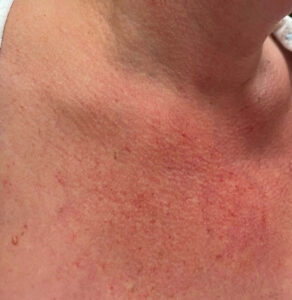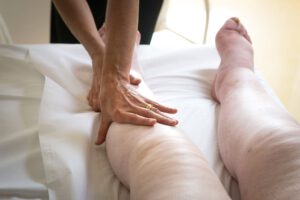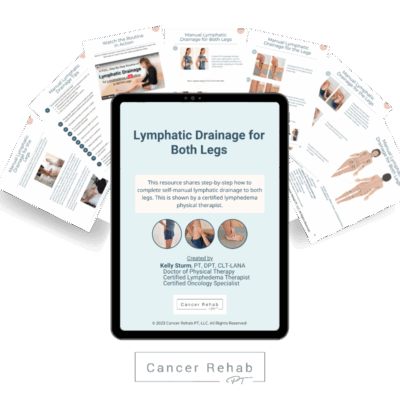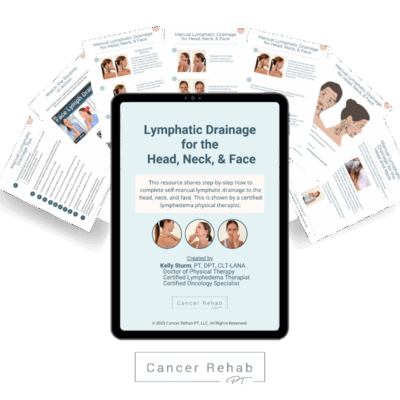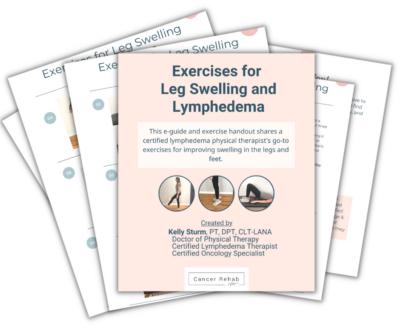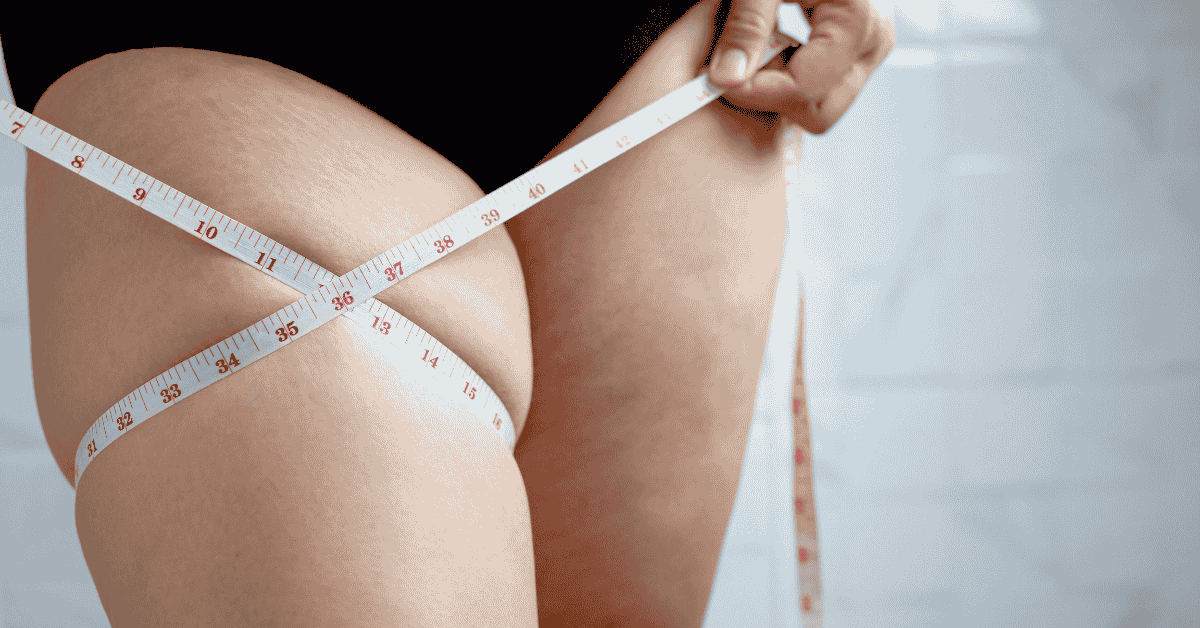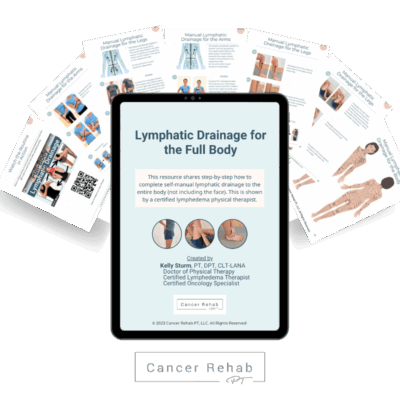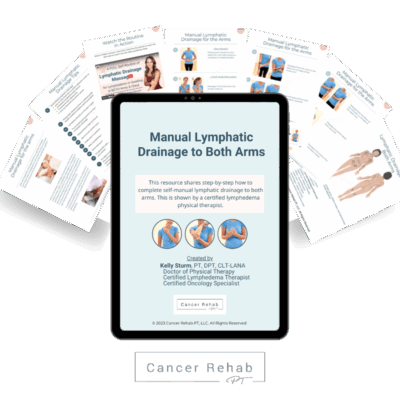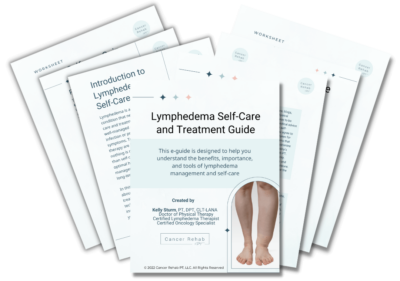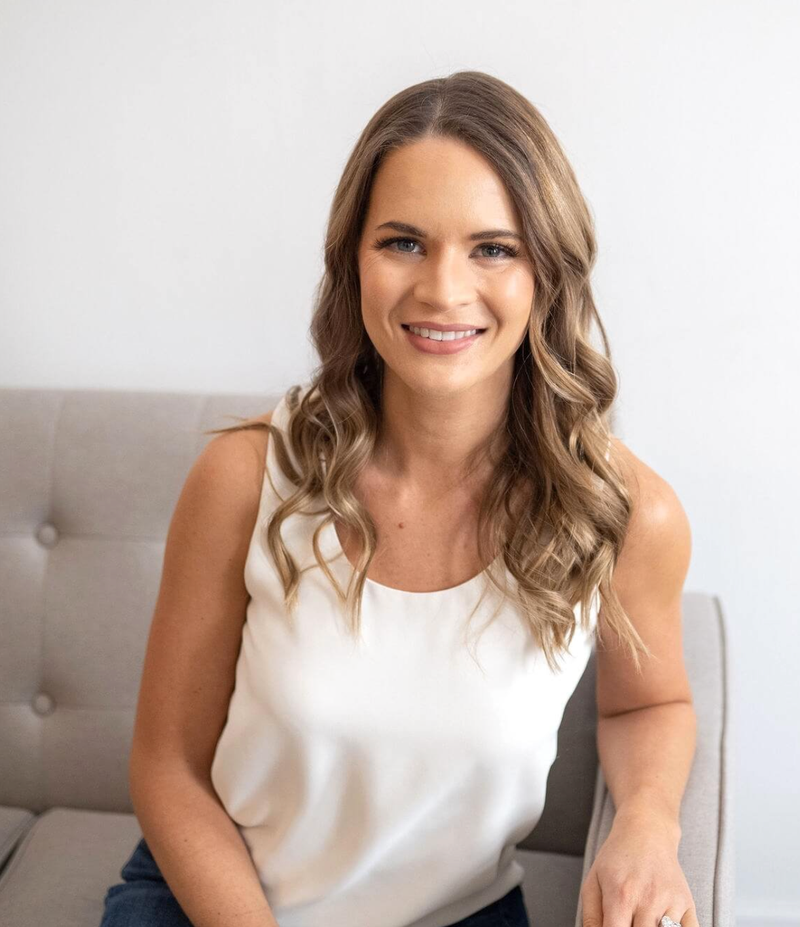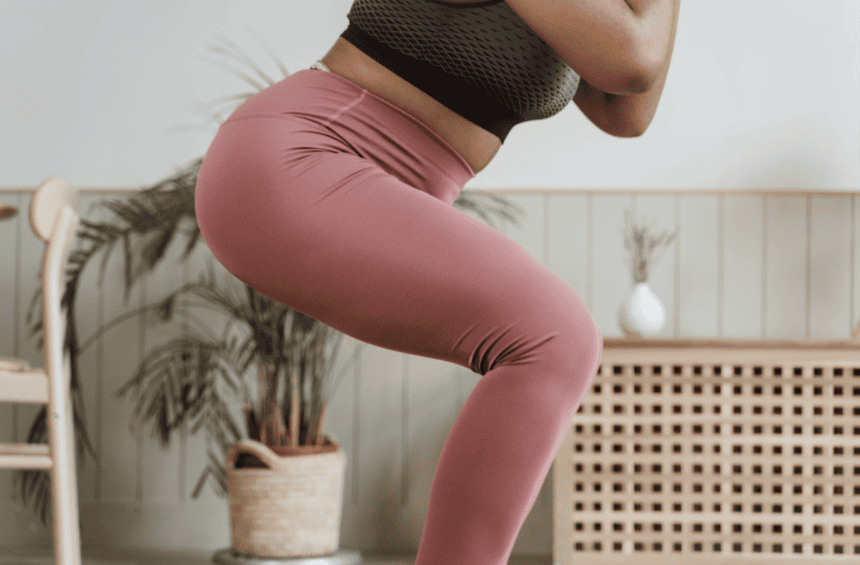If you’ve been hearing about Ozempic, Wegovy, or other GLP-1 medications and wondering whether they could help with lymphedema swelling, you’re not alone. As a physical therapist and certified lymphedema therapist (CLT-LANA), I’ve had many patients ask me about GLP-1 for lymphedema.
The question makes sense because these medications are known for weight loss, and weight affects swelling. But does that mean a weight-loss shot can treat lymphedema? Let’s look at what the research tells us and what I’m seeing in my practice.
What Is GLP-1 for Lymphedema?
Lymphedema happens when lymph fluid backs up in your body due to damage or dysfunction in your lymphatic system. This causes swelling (most commonly in your arms or legs) that can range from mild to severe.
Some people are born with lymphatic system problems (primary lymphedema), but most cases develop after cancer treatment, surgery, radiation, infection, or injury (secondary lymphedema). Many of the lymphedema patients I see are breast cancer survivors, but there are many other risk factors.
GLP-1 medications were first created to help manage type 2 diabetes.
Their full name is glucagon-like peptide-1 receptor agonists, and they work by mimicking a hormone in your body that regulates blood sugar and appetite.
Medications like semaglutide (Ozempic, Wegovy) and tirzepatide (Mounjaro, Zepbound) have become well-known because they lead to significant weight loss in many people.
When we talk about “GLP-1 for lymphedema,” we’re asking whether these weight-loss medications can reduce the swelling that comes with this condition.
Can GLP-1 Help Lymphedema?
Potentially. This question doesn’t have a simple yes-or-no answer. To understand why, we need to look at how weight and lymphedema interact.
Research shows us that having a higher BMI increases your risk of developing lymphedema, especially after lymph node removal for cancer treatment. Studies have also found that losing weight before surgery can lower the risk in breast cancer patients.
So it makes perfect sense that GLP-1 medications, which can lead to weight loss, have become part of this conversation.
However, once you already have lymphedema, the situation becomes more nuanced.
Can GLP-1 Treat or Cure Lymphedema?
When someone with lymphedema loses weight, the overall limb volume can decrease. This means your affected arm or leg may look smaller and measure smaller.
In my physical therapy clinic, when a patient comes in after losing 10 to 20 pounds through a healthy lymphedema diet and exercise, their measurements are often noticeably smaller, and their compression garments feel looser.
I’ve had a few patients come to me after losing 30+ pounds on GLP-1 medications. While their overall limb volume decreased enough that they needed small garments, they still need to wear compression most of the day and night, and still experience flare-ups when they don’t wear garments or with travel.
Similarly, if someone has gained weight, I typically see the opposite. AKA, increased measurements and tighter garments.
However, even with the weight reduction, the lymphatic damage remains.
In other words, GLP-1 medications don’t reverse lymphedema, although they can potentially help decrease swelling.
They may be a part of your personal medical treatment (with your doctor’s approval), but they’re not a cure for lymphedema.
Obesity-Induced Lymphedema
Some people develop lymphedema from severe, long-term obesity rather than cancer treatment or other causes.
In this case, even when someone loses a lot of weight, the lymphatic system may have sustained permanent damage, and swelling can persist despite the weight loss.
That said, if the weight loss happens before the lymphatic system reaches a point of irreversible damage, it can still help reduce or even resolve swelling (but not the lymphatic system damage).
So, Does GLP-1 for Lymphedema Work?
As a physical therapist and a certified lymphedema therapist (CLT-LANA), here’s my take on what we know right now about GLP-1 for lymphedema patients.
A few promising studies suggest that GLP-1 receptor agonists can help with breast cancer-related lymphedema and reduce the risk of developing cancer-related lymphedema after axillary lymph node dissection.
All of these are positive findings, and the Institute for Advanced Reconstruction actually announced a first-of-its-kind study of GLP-1 receptor agonists for lymphedema treatment in May 2025.
But at this point, we don’t have strong evidence that GLP-1 medications directly repair lymphatic damage.
Based on the research available and what I observe in my clinic, I believe the improvements people are experiencing come from overall weight loss and fluid shifts in the body, not because GLP-1s are fixing or healing a damaged lymphatic system.
That doesn’t make those improvements any less real or important. If someone feels more comfortable, moves more easily, and sees their swelling decrease, that matters tremendously.
However, you’ll still need the foundational lymphedema treatments, such as compression therapy, lymphatic drainage, exercise, and skin care. GLP-1 medications will complement this care.
In other words, GLP-1 medications can be a helpful tool for some people with lymphedema, but they’re not a cure or a replacement for all the other forms of lymphedema treatment.
What Is the Gold Standard for Lymphedema Treatment?
The gold standard treatment for lymphedema is called Complete Decongestive Therapy, or CDT. This is an intensive, multi-part approach that addresses swelling from several angles at once.
CDT typically happens in two phases:
Phase 1 is the intensive treatment phase. You work closely with a certified lymphedema therapist, often a few times a week, to reduce your swelling as much as possible.
This phase includes manual lymphatic drainage (a specialized, gentle massage technique), compression bandaging, physical therapy exercises, and skin care.
Phase 2 is the maintenance phase, where you learn to manage your lymphedema at home with a lymphedema self-care routine. This is what will allow you to maintain the progress you’ve made during the intensive treatment.
Lymphedema self-care usually still includes compression therapy, lymphatic drainage massage, exercise/movement, and skin care that you learned from Phase 1.
You may also find these resources helpful:
With exercise, virtually all forms of movement are helpful for lymphedema. You can try walking, swimming, or even something a bit more fun like vibration plate exercises. This will also help with weight loss, complementing GLP-1s.
Ozempic and Lymphedema: Can It Help with Swelling?
Ozempic is one of the most well-known GLP-1 medications, and many of my patients ask me about it. The answer is the same as for other GLP-1 drugs.
It might help reduce overall limb size through weight loss, but it doesn’t repair lymphatic damage.
Ozempic (semaglutide) works by promoting weight loss and improving metabolic health. If you have lymphedema and lose weight while taking Ozempic, your affected limb will likely measure smaller.
You might feel more comfortable and mobile, but you’ll still need compression therapy, exercise, and the other core lymphedema treatments.
GLP-1 and Lipedema
Lipedema often comes up in conversations about GLP-1 medications, so I want to clarify the difference between lipedema and lymphedema.
Lipedema affects fatty tissue, not lymph vessels. In lipedema, fat cells grow abnormally, causing painful and disproportionate swelling, usually in the legs. The swelling is symmetrical and doesn’t respond well to diet and exercise.
Lymphedema, on the other hand, is fluid buildup. You can also still lose weight through diet and exercise when living with lymphedema.
Some case reports and clinical observations suggest that GLP-1 medications might help people with lipedema through weight loss, improved metabolism, and reduced inflammation.
But we don’t have strong clinical trials yet to confirm these benefits.
One interesting aspect of GLP-1 medications is that they increase salt and water excretion through the kidneys. This can reduce general puffiness or water retention.
However, that’s not the same as treating the protein-rich lymph fluid that accumulates in lymphedema or the abnormal fat tissue that characterizes lipedema.
If you have lipedema or a combination of lipedema and lymphedema, talk with your doctor about whether GLP-1 medications might be appropriate for you.
FAQs
Can lymphedema go away if you lose weight?
No, losing weight doesn’t cure lymphedema. However, it can significantly improve your symptoms and reduce or even eliminate swelling. When you lose weight, the overall size of your affected limb gets smaller, and you also start putting less pressure on your lymphatic system.
In my practice, I’ve seen patients lose anywhere from 5 to 100 pounds. Those who lose weight through a sustainable diet and exercise typically see improvements in their lymphedema symptoms.
However, there’s still underlying damage to your lymphatic system that’ll stay. In addition to weight loss, you’ll need to continue managing lymphedema with compression therapy, lymphatic drainage, and other forms of treatment.
Does Zepbound help lymphedema?
Zepbound (tirzepatide) is another GLP-1 medication similar to Ozempic and Wegovy. Like those drugs, it can lead to weight loss, which may reduce the overall size of your affected limb. But Zepbound doesn’t specifically treat or cure lymphedema. It’s not designed for that purpose. As far as we currently know, any improvement in swelling comes from losing weight, not from healing your lymphatic system.
Is there no cure for lymphedema?
Currently, there’s no cure for lymphedema. That said, after working with lymphedema patients for over a decade as a certified lymphedema therapist (CLT-LANA), I’ve seen many people live full, active, and comfortable lives with lymphedema, as long as they’re sticking to proper management. Lymphedema is chronic, but “chronic” doesn’t mean “hopeless” or “debilitating.”
My Final Thoughts on GLP-1 and Lymphedema
GLP-1 medications can indirectly help some people with lymphedema by reducing overall limb volume, which can improve comfort and make daily activities easier. This can make a big difference in your quality of life.
However, we don’t have any evidence that these drugs heal or repair lymphatic damage. Research is ongoing, and I’m genuinely interested to see what future studies will reveal.
In the meantime, focus on what we know works: compression therapy, regular movement and exercise, careful skin care, and gentle lymphatic drainage. This should be your foundational care, regardless of whether you try GLP-1 medications.
You can find in-depth education and physical therapy exercises in my programs, Lower Body Lymphedema Rehab and Breast Cancer Rehab.
Or, get started with this FREE guide:


